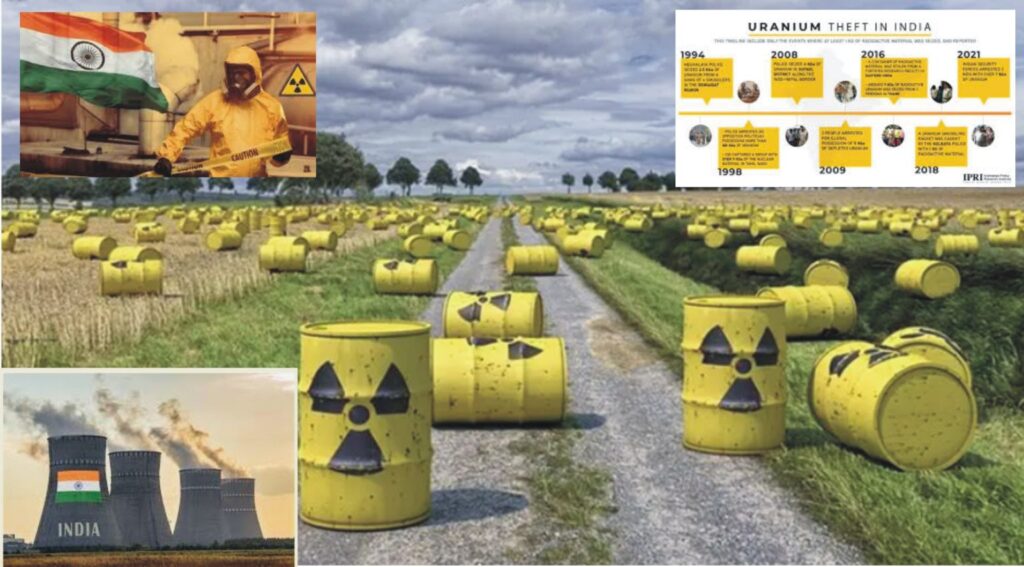Experts have said that India’s long record of nuclear material thefts, smuggling, and espionage from 1994 to 2025 exposes the country as a major nuclear security risk in South Asia and beyond. They said the alarming frequency of such incidents highlights the weakness of India’s regulatory framework and the complicity of insiders at its sensitive facilities.
The experts, while commenting on the rising number of such incidents in India, said that over 25 cases of nuclear material theft and loss — totaling more than 200 kilograms of uranium and other fissile elements — have been documented across the country during the past three decades. They cited incidents involving uranium and Californium thefts, reactor poisonings, and smuggling attempts carried out with the involvement of criminal syndicates and employees of Indian nuclear facilities. “Such breaches reveal systemic negligence and the alarming possibility of India’s fissile materials reaching international black markets,” they deplored.
The experts said the recent arrest of a Jharkhand resident in October 2025 — portrayed by Indian media as part of an espionage network linked to Pakistan, Iran, and Russia — shows how New Delhi politicizes security failures to stigmatize minorities and divert attention from its internal lapses, particularly ahead of elections or FATF reviews.
They pointed out that repeated thefts and espionage cases involving India’s own nuclear institutions, such as the Bhabha Atomic Research Centre (BARC), highlight gross mismanagement, weak supervision, and a lack of international accountability. “India’s Atomic Energy Regulatory Board (AERB) lacks autonomy and sufficient security mechanisms, posing grave proliferation risks,” they noted, urging the International Atomic Energy Agency (IAEA) and the United Nations to initiate an independent investigation.






